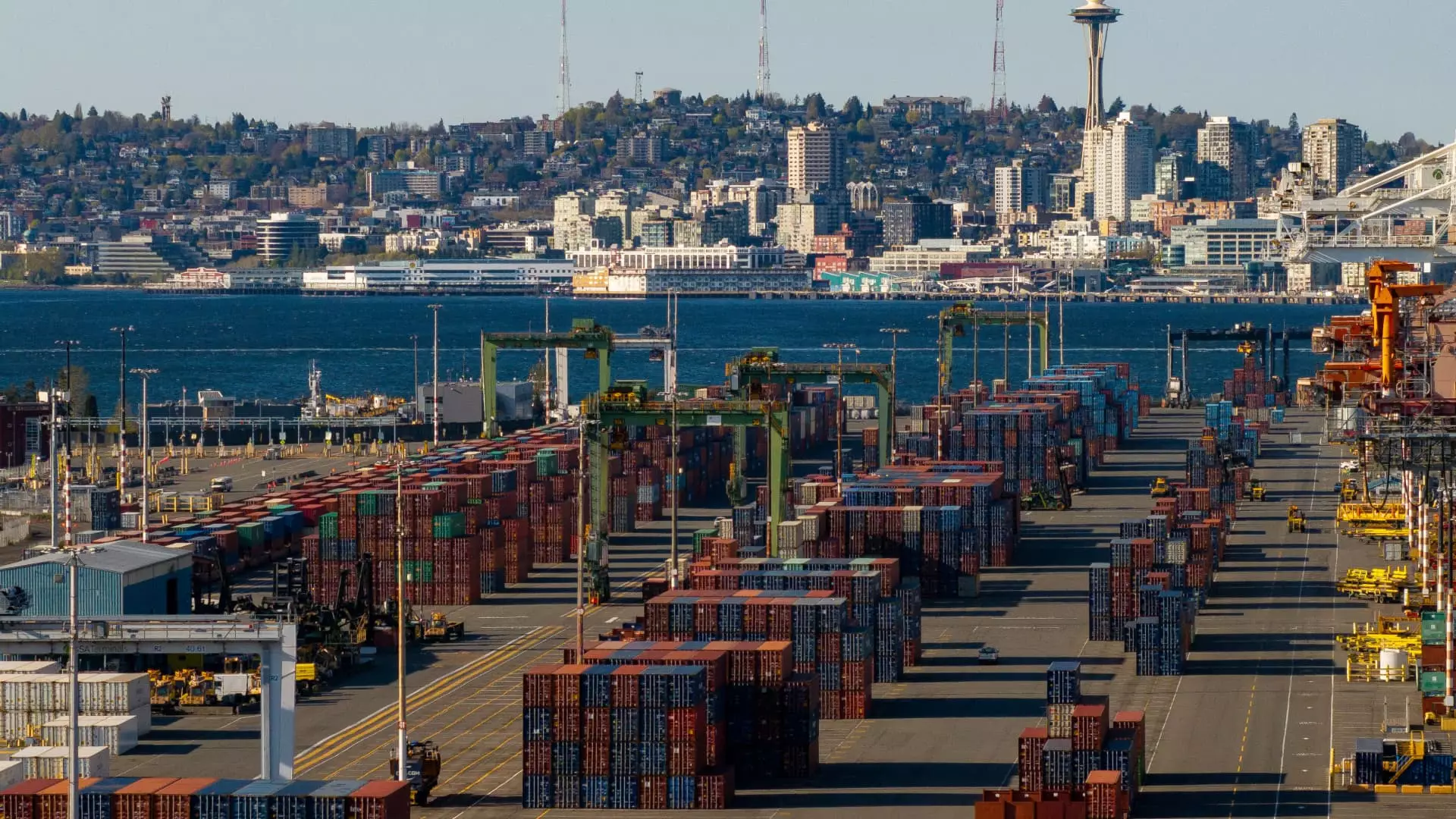As President Donald Trump’s trade policies continue to unfold, the implications of his tariffs on American households warrant serious examination. A recent analysis by the Institute on Taxation and Economic Policy (ITEP) reveals a startling truth: the economic burden of tariffs will primarily fall on the nation’s most vulnerable citizens—the poorest households. The analysis highlights that by 2026, the poorest 20% of American families, those earning less than $29,000, will face a tax increase four times greater than those in the top 1% of income earners. This disparity raises vital questions about president’s economic policies, revealing a regressive nature that undermines the very foundational goals of promoting upward mobility and economic equality.
Understanding Tariffs: A Tax by Any Other Name
The concept of tariffs—essentially taxes imposed on imported goods—has long been a point of contention among economists. While proponents argue that tariffs protect domestic industries and jobs, critics point out that they serve as a hidden tax on consumers. This fiscal reality means families with low incomes end up shouldering a disproportionately heavier load. According to the ITEP analysis, the poorest households will see their tax burden rise by an astonishing 6.2% of their income, compounded by higher consumer prices due to tariffs. Meanwhile, those in the top 1% will only experience a 1.7% increase relative to their income. This disparity underscores the harsh reality that tariffs do not only impact businesses but also inflict pain on American families struggling to make ends meet.
The Real Cost of Trade Wars
The implications of tariffs extend beyond mere numbers in an economic analysis; they manifest into the daily lives of Americans, especially those in economically precarious situations. Simply put, a tariff is a tax that eats into disposable income, the very income people rely on for crucial expenses like food and clothing. The Heritage Foundation aptly summarized this phenomenon back in 2017, emphasizing that “tariffs raise the price of food and clothing,” which represent a larger share of a low-income household’s budget than that of wealthier families. When tariffs increase prices of essential goods, they jeopardize not just the financial well-being of these families but also their overall quality of life.
The Economics of Indifference
It is astounding to witness an administration that prides itself on championing the working class implement policies that disproportionately target them for taxation. The Yale Budget Lab explicitly labeled the economic impact of Trump’s tariffs as “regressive.” It found that the impact of trade policies and retaliatory tariffs hits lower-income consumers around 2.5 times harder than wealthier households. This is not merely an economic analysis; it is a wake-up call for those who suggest that these policies support American families. The reality is that policies that benefit the top percentage while burdening the bottom bring a level of economic indifference that can have devastating social implications.
A Call for Transparency and Rethinking Trade Policies
This analysis begs for a critical evaluation of current trade policies. For instance, Treasury Secretary Scott Bessent posited a “one-time price adjustment” as a side effect of tariffs but remains vague about how those price adjustments align with the broader economic ecosystem. Will the anticipated tax cuts for lower-income families truly offset the burdens created by these tariffs, or are we witnessing a superficial attempt at appeasement? Economic strategies must foster genuine support for working American households, rather than introducing policies that contradict those very objectives.
Implications for Future Trade Relations
With tariffs on a variety of products—from aluminum and steel to automobiles—discussions surrounding trade deals signal a need for a thoughtful approach to reform. While it may be convenient to clamor for protections and higher import duties, let us not lose sight of the unintended consequences those actions spawn. Is it really prudent to risk the economic stability of our most vulnerable citizens for the sake of an illusory defense of domestic jobs? The stakes are alarmingly high, and the American populace deserves equitable trade policies that do not exacerbate existing inequalities.
Ultimately, the discourse surrounding tariffs should evolve beyond mere policy to include an honest evaluation of their impacts on the very fabric of American society. In doing so, we can begin to cultivate an economic strategy that aligns with the goal of lifting fellow citizens rather than adding to their burdens.

